| 1 x afterRenderRawModule mod_tags_popular (Search) (18.77KB) (31.2%) | 49.57ms |
| 1 x afterRenderRawModule mod_articles_category (READ MORE...) (6.16KB) (23.17%) | 36.82ms |
| 1 x afterRenderComponent com_tags (1.77MB) (18.86%) | 29.98ms |
| 1 x afterInitialise (1.28MB) (6.74%) | 10.72ms |
| 1 x afterRender (321.79KB) (3.22%) | 5.11ms |
| 1 x beforeRenderRawModule mod_articles_category (READ MORE...) (423.86KB) (2.97%) | 4.72ms |
| 1 x afterRoute (840KB) (2.49%) | 3.96ms |
| 1 x beforeRenderRawModule mod_custom (Chronic fatigue tied Alan to his bed but Q10 capsules saved him:) (244.28KB) (1.3%) | 2.06ms |
| 1 x afterRenderRawModule mod_finder () (128.59KB) (1.03%) | 1.63ms |
| 1 x afterRenderRawModule mod_languages (Sprogskift) (22.56KB) (0.97%) | 1.54ms |
| 1 x afterRenderRawModule mod_menu (Main Menu - English) (192.45KB) (0.9%) | 1.43ms |
| 1 x afterDispatch (27.42KB) (0.89%) | 1.42ms |
| 1 x afterRenderRawModule mod_custom () (22.64KB) (0.56%) | 891μs |
| 1 x beforeRenderRawModule mod_menu (Main Menu - English) (29.14KB) (0.46%) | 733μs |
| 1 x afterRenderRawModule mod_menu (Main Menu - English) (6.3KB) (0.45%) | 721μs |
| 1 x afterRenderRawModule mod_languages (Sprogskift Mobil) (3.89KB) (0.43%) | 678μs |
| 1 x After Access::preloadComponents (all components) (103.05KB) (0.4%) | 636μs |
| 1 x afterLoad (456.34KB) (0.39%) | 616μs |
| 1 x afterRenderRawModule mod_finder () (6.29KB) (0.34%) | 533μs |
| 1 x afterRenderRawModule mod_menu (Are you getting enough vitamins and minerals?) (22.39KB) (0.32%) | 509μs |
| 1 x Before Access::preloadComponents (all components) (50.9KB) (0.25%) | 399μs |
| 1 x beforeRenderModule mod_articles_category (READ MORE...) (20.82KB) (0.23%) | 365μs |
| 1 x afterRenderRawModule mod_menu (Did you know.....) (25.52KB) (0.18%) | 286μs |
| 1 x afterRenderRawModule mod_menu (The key to increased well-being) (17.83KB) (0.17%) | 266μs |
| 1 x beforeRenderComponent com_tags (20.62KB) (0.15%) | 237μs |
| 1 x beforeRenderRawModule mod_custom () (8.66KB) (0.11%) | 175μs |
| 1 x beforeRenderRawModule mod_custom () (6.62KB) (0.11%) | 168μs |
| 1 x afterRenderRawModule mod_custom (BOOST YOUR IMMUNE DEFENSE) (3.8KB) (0.1%) | 166μs |
| 1 x afterRenderRawModule mod_custom () (904B) (0.1%) | 165μs |
| 1 x afterRenderRawModule mod_custom () (896B) (0.06%) | 96μs |
| 1 x beforeRenderRawModule mod_menu (Main Menu - English) (5.07KB) (0.06%) | 95μs |
| 1 x beforeRenderRawModule mod_custom () (688B) (0.05%) | 86μs |
| 1 x afterRenderModule mod_custom (Chronic fatigue tied Alan to his bed but Q10 capsules saved him:) (1.3KB) (0.04%) | 64μs |
| 1 x afterRenderRawModule mod_custom (Get additionel and more detailed knowledge ) (1.55KB) (0.03%) | 54μs |
| 1 x afterRenderModule mod_menu (Main Menu - English) (4.86KB) (0.03%) | 52μs |
| 1 x afterRenderModule mod_custom () (1.23KB) (0.03%) | 50μs |
| 1 x afterRenderRawModule mod_custom (Chronic fatigue tied Alan to his bed but Q10 capsules saved him:) (1.06KB) (0.03%) | 48μs |
| 1 x afterRenderRawModule mod_custom (Useful Links) (1.02KB) (0.03%) | 47μs |
| 1 x afterRenderModule mod_articles_category (READ MORE...) (1.25KB) (0.03%) | 47μs |
| 1 x afterRenderModule mod_finder () (1.23KB) (0.03%) | 43μs |
| 1 x afterRenderModule mod_menu (Main Menu - English) (1.25KB) (0.03%) | 42μs |
| 1 x After Access::getAssetRules (id:8 name:com_content) (7.05KB) (0.03%) | 40μs |
| 1 x afterRenderModule mod_custom (BOOST YOUR IMMUNE DEFENSE) (1.28KB) (0.02%) | 38μs |
| 1 x afterRenderModule mod_finder () (3.29KB) (0.02%) | 34μs |
| 1 x afterRenderModule mod_custom (Useful Links) (1.27KB) (0.02%) | 32μs |
| 1 x afterRenderModule mod_languages (Sprogskift Mobil) (1.27KB) (0.02%) | 32μs |
| 1 x afterRenderModule mod_custom (Cholesterol-lowering without side effects:) (1.28KB) (0.02%) | 30μs |
| 1 x beforeRenderRawModule mod_custom (Overview of vitamins, minerals, and essential fatty acids) (768B) (0.02%) | 29μs |
| 1 x beforeRenderRawModule mod_custom (Get additionel and more detailed knowledge ) (816B) (0.02%) | 28μs |
| 1 x afterRenderModule mod_custom () (2.43KB) (0.02%) | 27μs |
| 1 x beforeRenderRawModule mod_custom (BOOST YOUR IMMUNE DEFENSE) (6.45KB) (0.02%) | 26μs |
| 1 x afterRenderRawModule mod_custom (Overview of vitamins, minerals, and essential fatty acids) (960B) (0.02%) | 26μs |
| 1 x afterRenderModule mod_tags_popular (Search) (1.27KB) (0.02%) | 26μs |
| 1 x afterRenderRawModule mod_custom (Cholesterol-lowering without side effects:) (1.06KB) (0.02%) | 24μs |
| 1 x afterRenderModule mod_custom (Overview of vitamins, minerals, and essential fatty acids) (1.31KB) (0.02%) | 24μs |
| 1 x afterRenderModule mod_custom (Are you taking supplements) (1.28KB) (0.01%) | 22μs |
| 1 x afterRenderModule mod_custom () (2.71KB) (0.01%) | 22μs |
| 1 x afterRenderRawModule mod_custom (Q10 goes by many names) (928B) (0.01%) | 22μs |
| 1 x afterRenderModule mod_custom (Antiaging) (3.77KB) (0.01%) | 22μs |
| 1 x afterRenderModule mod_languages (Sprogskift) (5.31KB) (0.01%) | 22μs |
| 1 x Before Access::getAssetRules (id:8 name:com_content) (840B) (0.01%) | 21μs |
| 1 x afterRenderModule mod_custom (Get additionel and more detailed knowledge ) (1.3KB) (0.01%) | 21μs |
| 1 x afterRenderModule mod_custom (Q10 goes by many names) (1.27KB) (0.01%) | 21μs |
| 1 x afterRenderModule mod_custom (Check this before you buy a Q10 product) (1.28KB) (0.01%) | 21μs |
| 1 x afterRenderModule mod_custom (Weight loss that works) (1.27KB) (0.01%) | 20μs |
| 1 x afterRenderModule mod_menu (Are you getting enough vitamins and minerals?) (1.3KB) (0.01%) | 20μs |
| 1 x afterRenderModule mod_menu (The key to increased well-being) (1.28KB) (0.01%) | 20μs |
| 1 x afterRenderModule mod_menu (Did you know.....) (1.27KB) (0.01%) | 20μs |
| 1 x afterRenderRawModule mod_custom (Are you taking supplements) (1.03KB) (0.01%) | 19μs |
| 1 x beforeRenderRawModule mod_menu (The key to increased well-being) (736B) (0.01%) | 19μs |
| 1 x afterRenderRawModule mod_custom (Check this before you buy a Q10 product) (944B) (0.01%) | 19μs |
| 1 x afterRenderRawModule mod_custom (Weight loss that works) (1.03KB) (0.01%) | 18μs |
| 1 x beforeRenderRawModule mod_languages (Sprogskift) (3.94KB) (0.01%) | 18μs |
| 1 x beforeRenderRawModule mod_tags_popular (Search) (2.36KB) (0.01%) | 17μs |
| 1 x afterRenderRawModule mod_custom (Antiaging) (912B) (0.01%) | 17μs |
| 1 x beforeRenderRawModule mod_languages (Sprogskift Mobil) (912B) (0.01%) | 17μs |
| 1 x beforeRenderRawModule mod_menu (Did you know.....) (720B) (0.01%) | 16μs |
| 1 x beforeRenderRawModule mod_custom (Cholesterol-lowering without side effects:) (368B) (0.01%) | 15μs |
| 1 x beforeRenderRawModule mod_finder () (6.34KB) (0.01%) | 15μs |
| 1 x beforeRenderModule mod_custom (BOOST YOUR IMMUNE DEFENSE) (6.81KB) (0.01%) | 14μs |
| 1 x beforeRenderRawModule mod_custom (Useful Links) (1.06KB) (0.01%) | 13μs |
| 1 x beforeRenderModule mod_tags_popular (Search) (1.98KB) (0.01%) | 13μs |
| 3 x beforeRenderModule mod_custom () (704B) (0.01%) | 12μs |
| 1 x beforeRenderModule mod_custom (Get additionel and more detailed knowledge ) (1.17KB) (0.01%) | 11μs |
| 1 x beforeRenderRawModule mod_menu (Are you getting enough vitamins and minerals?) (2.5KB) (0.01%) | 11μs |
| 1 x beforeRenderRawModule mod_custom (Q10 goes by many names) (608B) (0.01%) | 10μs |
| 1 x beforeRenderModule mod_custom (Overview of vitamins, minerals, and essential fatty acids) (384B) (0.01%) | 10μs |
| 1 x beforeRenderModule mod_menu (Are you getting enough vitamins and minerals?) (2.13KB) (0.01%) | 10μs |
| 1 x beforeRenderModule mod_menu (The key to increased well-being) (352B) (0.01%) | 10μs |
| 1 x beforeRenderModule mod_menu (Did you know.....) (336B) (0.01%) | 10μs |
| 1 x beforeRenderRawModule mod_finder () (2.3KB) (0.01%) | 10μs |
| 1 x beforeRenderRawModule mod_custom (Check this before you buy a Q10 product) (752B) (0.01%) | 9μs |
| 1 x beforeRenderRawModule mod_custom (Are you taking supplements) (736B) (0.01%) | 9μs |
| 1 x beforeRenderRawModule mod_custom (Weight loss that works) (736B) (0.01%) | 9μs |
| 1 x beforeRenderRawModule mod_custom (Antiaging) (720B) (0.01%) | 9μs |
| 1 x beforeRenderModule mod_custom (Q10 goes by many names) (208B) (0.01%) | 9μs |
| 1 x beforeRenderModule mod_custom (Check this before you buy a Q10 product) (352B) (0.01%) | 9μs |
| 2 x beforeRenderModule mod_finder () (704B) (0.01%) | 9μs |
| 1 x beforeRenderModule mod_custom (Weight loss that works) (336B) (0.01%) | 9μs |
| 1 x beforeRenderModule mod_custom (Useful Links) (1.44KB) (0.01%) | 9μs |
| 1 x beforeRenderModule mod_custom (Antiaging) (336B) (0.01%) | 8μs |
| 1 x beforeRenderModule mod_custom (Are you taking supplements) (352B) (0%) | 8μs |
| 2 x beforeRenderModule mod_menu (Main Menu - English) (720B) (0%) | 8μs |
| 1 x beforeRenderModule mod_languages (Sprogskift) (720B) (0%) | 6μs |
| 1 x beforeRenderModule mod_custom (Chronic fatigue tied Alan to his bed but Q10 capsules saved him:) (768B) (0%) | 5μs |
| 1 x beforeRenderModule mod_languages (Sprogskift Mobil) (720B) (0%) | 3μs |
| 1 x beforeRenderModule mod_custom (Cholesterol-lowering without side effects:) (752B) (0%) | 2μs |
 After giving birth, the mother’s adaptability and resources are put to the test. Also, the mother’s “baby brain” tends to take over. Unfortunately, many new mothers get the baby blues, and around 10 percent develop an actual postpartum depression that requires immediate attention. It is important to focus on the underlying causes that include the course of the delivery plus hormonal, biological, social, and emotional changes.
After giving birth, the mother’s adaptability and resources are put to the test. Also, the mother’s “baby brain” tends to take over. Unfortunately, many new mothers get the baby blues, and around 10 percent develop an actual postpartum depression that requires immediate attention. It is important to focus on the underlying causes that include the course of the delivery plus hormonal, biological, social, and emotional changes.







 A new study links thyroid disorders to female infertility. At the same time, it is known that selenium, an essential micronutrient, is required for normal functioning of the thyroid gland. Modern diets are depleted of selenium and the question is: Could selenium supplements be a good place to begin for infertile couples before embarking on expensive IVF therapy?
A new study links thyroid disorders to female infertility. At the same time, it is known that selenium, an essential micronutrient, is required for normal functioning of the thyroid gland. Modern diets are depleted of selenium and the question is: Could selenium supplements be a good place to begin for infertile couples before embarking on expensive IVF therapy?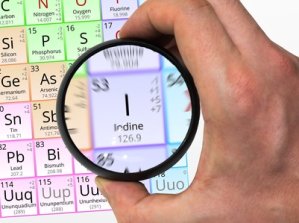 It appears so. Iodine is an essential trace element that is vital for metabolism and estrogen balance. Iodine also helps the body get rid of environmental toxins. In fact, exposure to these toxins increases our need for iodine, and many experts believe that the official recommendations for iodine are too low.
It appears so. Iodine is an essential trace element that is vital for metabolism and estrogen balance. Iodine also helps the body get rid of environmental toxins. In fact, exposure to these toxins increases our need for iodine, and many experts believe that the official recommendations for iodine are too low. It is vital for sportspeople, especially those who engage in elite sports and arduous training, to be adequately supplied with dietary fuel, vitamins and minerals, as deficiencies may impair their performance and increase the risk of sports injuries, infections, anemia, osteoporosis, and hormonal imbalances.
It is vital for sportspeople, especially those who engage in elite sports and arduous training, to be adequately supplied with dietary fuel, vitamins and minerals, as deficiencies may impair their performance and increase the risk of sports injuries, infections, anemia, osteoporosis, and hormonal imbalances.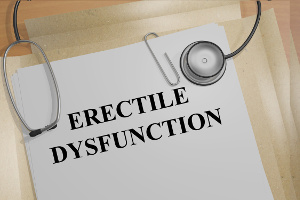 Many men suffer from erectile dysfunction, a problem that often foreshadows cardiovascular disorders. It appears that
Many men suffer from erectile dysfunction, a problem that often foreshadows cardiovascular disorders. It appears that  Lack of
Lack of  Iodine's ability to protect against breast cancer has been demonstrated in animal studies. Furthermore, epidemiological studies suggest that consuming more dietary iodine lowers the risk of the dreaded disease, which represents 25% of all cancers in women.
Iodine's ability to protect against breast cancer has been demonstrated in animal studies. Furthermore, epidemiological studies suggest that consuming more dietary iodine lowers the risk of the dreaded disease, which represents 25% of all cancers in women. All
All 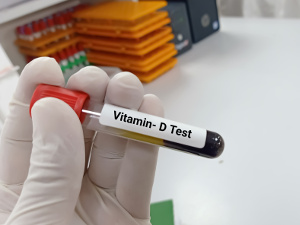 PCOS or polycystic ovary syndrome is a hormone imbalance and the most common cause of involuntary female infertility. The disease brings on symptoms such as tiredness, sugar cravings, overweight, hirsutism, and an increased risk of type 2 diabetes. It turns out that women with PCOS also have lower levels of
PCOS or polycystic ovary syndrome is a hormone imbalance and the most common cause of involuntary female infertility. The disease brings on symptoms such as tiredness, sugar cravings, overweight, hirsutism, and an increased risk of type 2 diabetes. It turns out that women with PCOS also have lower levels of 
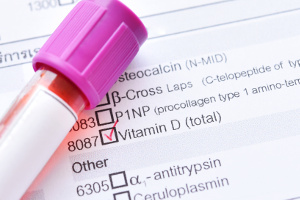 Menopause is characterized by a host of completely natural physiological changes in the hormonal balance. However, many women experience hormonal imbalances that may lead to weight gain, redistribution of their fat mass, increased abdominal obesity and an elevated risk of osteoporosis, cardiovascular disease, type 2 diabetes, and cancer. The hormonal changes may also affect the nutritional status including nutrients like
Menopause is characterized by a host of completely natural physiological changes in the hormonal balance. However, many women experience hormonal imbalances that may lead to weight gain, redistribution of their fat mass, increased abdominal obesity and an elevated risk of osteoporosis, cardiovascular disease, type 2 diabetes, and cancer. The hormonal changes may also affect the nutritional status including nutrients like  New Year’s resolutions are often related to healthier living with better dietary choices, fewer stimulants, and more exercise. We want to stay as young and vital as possible with lots of energy. However, life is not always that simple, and nature often needs a helping hand. The following anti-ageing tips – including the essential beauty sleep – are based on a summary of articles that have all been published previously on this site.
New Year’s resolutions are often related to healthier living with better dietary choices, fewer stimulants, and more exercise. We want to stay as young and vital as possible with lots of energy. However, life is not always that simple, and nature often needs a helping hand. The following anti-ageing tips – including the essential beauty sleep – are based on a summary of articles that have all been published previously on this site. Melatonin is primarily known as a sleep hormone, but the substance deserves a lot more attention. Studies show that melatonin can step up the body's fat burning capacity, reduce nocturnal hunger, and counteract weight increase in postmenopausal women.
Melatonin is primarily known as a sleep hormone, but the substance deserves a lot more attention. Studies show that melatonin can step up the body's fat burning capacity, reduce nocturnal hunger, and counteract weight increase in postmenopausal women.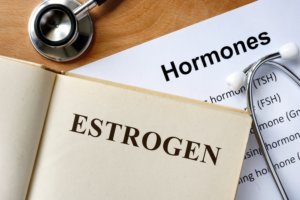 A woman’s estrogen balance is of vital importance to her fertility, mucosa, mood, libido, bones, cancer preventions, and many other things. There are also many myths about estrogen, which is merely a common term for the three types of estrogen – estradiol, estrone, and estriol – that have widely different functions. Like progesterone, stress hormones, and testosterone, estrogen belongs to the group of steroid hormones, where one hormone is built from another with help from enzymes. These enzymes depend on various nutrients such as iodine, vitamin D, magnesium, and selenium. If we lack these nutrients it may increase our risk of hormone imbalances, hot flushes, dry mucosa, bladder problems, and breast cancer.
A woman’s estrogen balance is of vital importance to her fertility, mucosa, mood, libido, bones, cancer preventions, and many other things. There are also many myths about estrogen, which is merely a common term for the three types of estrogen – estradiol, estrone, and estriol – that have widely different functions. Like progesterone, stress hormones, and testosterone, estrogen belongs to the group of steroid hormones, where one hormone is built from another with help from enzymes. These enzymes depend on various nutrients such as iodine, vitamin D, magnesium, and selenium. If we lack these nutrients it may increase our risk of hormone imbalances, hot flushes, dry mucosa, bladder problems, and breast cancer.  Hormonal imbalances have broad implications and increase the risk of chronic fatigue, overweight, impaired fertility, dry mucosa, hot flushes, slow metabolism, breast cancer, and many other problems. Lack of essential nutrients contributes to such disruptions of the sensitive hormone system. This is also the case with hormone-disrupting compounds.
Hormonal imbalances have broad implications and increase the risk of chronic fatigue, overweight, impaired fertility, dry mucosa, hot flushes, slow metabolism, breast cancer, and many other problems. Lack of essential nutrients contributes to such disruptions of the sensitive hormone system. This is also the case with hormone-disrupting compounds. Vitamin B2 is water-soluble and because it does not get stored in the body we depend on regular intake of the nutrient. Vitamin B2 is also known as lactoflavin and is used as a yellow colouring agent/additive in various foods. When ingested in very large quantities vitamin B2 causes the urine to turn highly yellow. Vitamin B2 is destroyed by light, heating, and alcohol.
Vitamin B2 is water-soluble and because it does not get stored in the body we depend on regular intake of the nutrient. Vitamin B2 is also known as lactoflavin and is used as a yellow colouring agent/additive in various foods. When ingested in very large quantities vitamin B2 causes the urine to turn highly yellow. Vitamin B2 is destroyed by light, heating, and alcohol.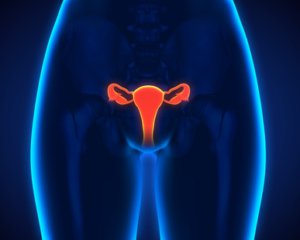 According to a large American study, a high dietary intake of vitamin D and calcium is associated with a lower risk of early-onset menopause, where the menstrual periods cease before a woman reaches 45 years of age. Premature menopause affects around 10 percent of women, and the condition increases the risk of impaired fertility, osteoporosis, cardiovascular disease, and earlier cognitive impairment. The prevention of these diseases is also a matter of getting enough sunshine, magnesium, and omega-3.
According to a large American study, a high dietary intake of vitamin D and calcium is associated with a lower risk of early-onset menopause, where the menstrual periods cease before a woman reaches 45 years of age. Premature menopause affects around 10 percent of women, and the condition increases the risk of impaired fertility, osteoporosis, cardiovascular disease, and earlier cognitive impairment. The prevention of these diseases is also a matter of getting enough sunshine, magnesium, and omega-3. According to a new study, supplementing with large doses of
According to a new study, supplementing with large doses of "After about one week of taking the Q10 supplement I could feel a huge difference," says 23-year old Alan Piccini, who has been suffering from extreme fatigue and muscle aches ever since he was a child.
"After about one week of taking the Q10 supplement I could feel a huge difference," says 23-year old Alan Piccini, who has been suffering from extreme fatigue and muscle aches ever since he was a child. “Taking capsules with co-enzyme Q10 has freed me of the severe side effects of my cholesterol lowering medicine,” Mrs Franken explains.
“Taking capsules with co-enzyme Q10 has freed me of the severe side effects of my cholesterol lowering medicine,” Mrs Franken explains.